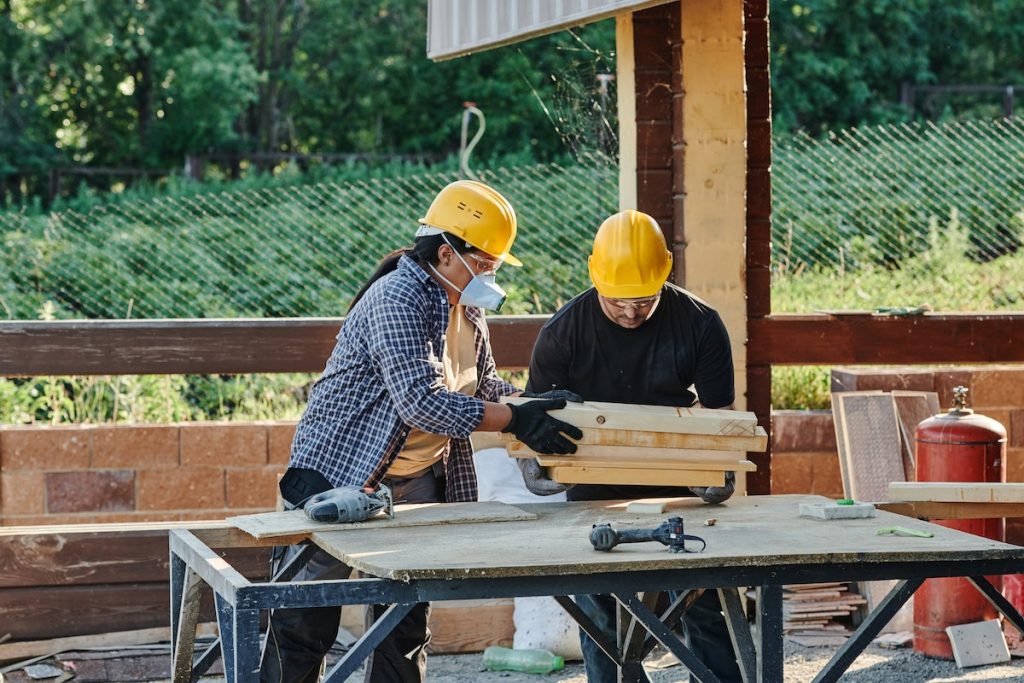- Identify causes of delays and plan to address them.
- Ensure sufficient resources (personnel, materials) are available.
- Invest in quality materials to avoid costly repairs or replacements later.
- Have regular meetings with all relevant parties to ensure everyone is informed about progress and any potential changes that need addressing.
Construction projects are complex endeavors with many moving parts and stakeholders. As such, they’re prone to delays, cost overruns, and other problems. Fortunately, you can take steps to reduce the likelihood of these issues.
By being proactive and having a good plan in place from the start, you can ensure that your project runs smoothly from start to finish. Here’s a Here’slook at some of the best practices for preventing construction project delays and problems.
Identify Common Causes of Delays
The first thing to do is to identify common causes of project delays. This is important so that you can take preventive measures to address potential problems. Common causes of construction delays include:
Malfunctioning equipment
Without the right equipment, a project may grind to a halt. Regular maintenance and heavy equipment repair services can help reduce the risk of delays due to malfunctioning machinery. Make sure to have a plan in place to address any equipment issues quickly and efficiently.
Poor Coordination

Effective communication and coordination between all project stakeholders are crucial for success. Poorly coordinated teams may run into delays due to confusion or miscommunication, so take steps to ensure that your team has the resources it needs to stay organized and on task.
Lack of Resources
Another common cause of delays is the lack of resources—both personnel and materials—that are necessary for project completion. This could mean not having enough workers onsite to complete tasks in a timely manner or not having enough materials on hand when they are needed. To prevent this type of delay, it’s important to plan by ensuring sufficient resources are available before beginning work.
Changes in Scope of Work or Specifications
One of the most frequent causes of delays is changes in scope or specifications that may arise during the course of a project. Mitigating this type of delay requires clear communication between all parties involved with the project as well as constant monitoring of progress so that any changes can be addressed quickly and efficiently.
Be Prepared for Unexpected Challenges
No construction project is without its fair share of surprises and unexpected challenges—and it’s important to be prepared for them. To do this, it’s essential to have a good plan from the very beginning of the project. This includes mapping out all stages of the project—from initial design through completion—as well as setting clear timelines and identifying potential risks that could lead to delays or problems down the line.
Having these elements mapped out ahead of time will give you an idea of what challenges may arise during construction so that you can plan accordingly and identify ways to address them quickly if they do occur.
Choose Quality Materials
If you want your construction project to go off without a hitch, then it’s essential to invest in high-quality materials right from the start. Cheap materials may save you money upfront, but they often result in costly repairs or replacements down the road.
Furthermore, low-grade materials can also cause delays due to unexpected problems during installation or use; for instance, if poor-quality wiring leads to electrical issues during installation, this could significantly reduce your timeline during repairs. For this reason, it pays dividends in both time and money to choose quality materials right off the bat.
Communicate Effectively with Your Team

The success of any construction project relies heavily on effective communication between all relevant parties involved—including contractors, vendors, suppliers, workers onsite etc.—and ensuring everyone is informed about changes or developments throughout each stage of the process is key for avoiding costly delays or mistakes due to miscommunication or lack thereof.
It’s best practice to have regular meetings with all relevant parties involved in order to ensure everyone has up-to-date information about progress so far, as well as any potential changes that need addressing going forward. Good communication should also include continual updates regarding budgeting status so everyone is aware of when costs might exceed expectations before it’s too late!
Construction projects come with their own unique set of challenges which can lead to costly delays and problems if not managed correctly from start to finish. But by following these best practices, you can ensure your project runs smoothly and on time. So don’t underestimate the importance of planning and communication when embarking on a construction project—these small steps can make a big difference in outcomes!
